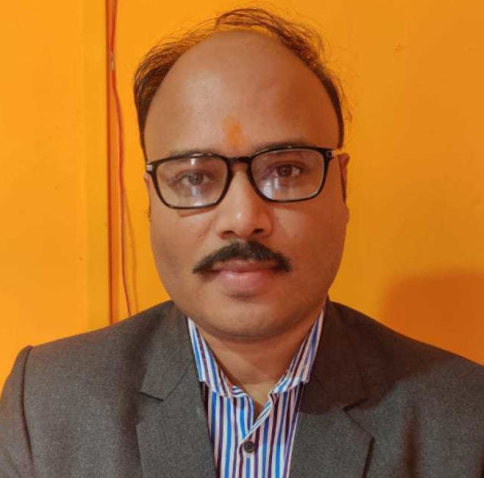Introduction
Gut health is a subject that has received tremendous attention in recent years, and for good reason. Your gut, often called the “second brain,” is home to trillions of microorganisms—bacteria, fungi, and viruses—that together form what we call the gut microbiome. This ecosystem plays a vital role not only in digestion but also in immunity, mental well-being, hormone regulation, and weight management.
If your gut is healthy, you’ll likely feel energetic, digest food easily, fight infections better, and even experience improved mood. On the other hand, poor gut health can lead to digestive issues, chronic fatigue, weakened immunity, and skin problems.
In this in-depth guide, we’ll explore how to naturally improve gut health, the best foods to eat, the habits to avoid, lifestyle changes, and medical interventions when needed. You’ll also find answers to the most commonly asked questions about gut health.
What is Gut Health?
Gut health refers to the balance and proper functioning of the gastrointestinal system. A healthy gut has:
-
A diverse microbiome with beneficial bacteria
-
Smooth digestion and nutrient absorption
-
A strong gut lining to prevent leaky gut
-
A well-functioning gut-brain axis that supports mental health
When the balance of bacteria tips in favor of harmful microbes, it can lead to problems like irritable bowel syndrome (IBS), obesity, mood disorders, autoimmune conditions, and nutrient deficiencies.
Why Gut Health Matters
-
Digestion and Nutrient Absorption
Your gut processes food and ensures nutrients like vitamins, minerals, proteins, and fats reach the bloodstream. -
Immunity
About 70% of your immune cells live in the gut. If your gut is healthy, your immune system can fight infections more effectively. -
Mental Well-Being
The gut communicates with the brain through the gut-brain axis. Poor gut health can worsen anxiety, depression, and mood swings. -
Hormonal Regulation
Gut bacteria help manage hormones like insulin, estrogen, and cortisol. An imbalance can cause weight gain, mood fluctuations, and metabolic problems. -
Weight Control
People with a diverse gut microbiome are more likely to maintain a healthy weight compared to those with a poor microbial balance.
Signs of Poor Gut Health
-
Persistent bloating and gas
-
Irregular bowel movements (constipation or diarrhea)
-
Food intolerances or sensitivities
-
Constant fatigue and low energy
-
Frequent infections
-
Skin conditions such as acne or eczema
-
Brain fog and poor concentration
If you experience several of these symptoms, it may be a sign your gut needs attention.
How to Improve Gut Health Naturally
1. Eat More Fiber
Fiber feeds beneficial bacteria in the gut. Aim for 25–30 grams daily from whole grains, beans, lentils, fruits, and vegetables.
2. Add Probiotics
Probiotics are live microorganisms that boost the good bacteria in your gut. Include fermented foods like yogurt, kefir, sauerkraut, kimchi, and kombucha.
3. Include Prebiotics
Prebiotics are the food that probiotics thrive on. They’re found in garlic, onions, leeks, asparagus, bananas, and oats.
4. Stay Hydrated
Water aids digestion and nutrient absorption. Drink 8–10 glasses daily. Herbal teas and infused water also support hydration.
5. Reduce Processed Foods
Packaged snacks, fried foods, and sugary drinks promote harmful bacteria. Stick to whole, natural foods.
6. Manage Stress
Stress can alter gut bacteria and cause inflammation. Meditation, yoga, and mindful breathing reduce its impact.
7. Improve Sleep Quality
A lack of sleep disrupts the microbiome. Aim for 7–8 hours of quality rest nightly.
8. Limit Antibiotic Use
Overuse of antibiotics kills both harmful and beneficial bacteria. Take them only when prescribed.
9. Exercise Regularly
Even 30 minutes of walking or moderate activity daily can improve gut diversity.
10. Track Your Food
Keep a diary of foods that trigger bloating or discomfort. Identifying intolerances helps restore balance.
Best Foods for Gut Health
-
Fermented foods: yogurt, kefir, kimchi, sauerkraut
-
High-fiber foods: apples, lentils, chia seeds, broccoli
-
Healthy fats: avocado, nuts, extra-virgin olive oil
-
Polyphenols: green tea, dark chocolate, blueberries
-
Bone broth: nourishes the gut lining
Foods That Harm Gut Health
-
Processed meats and fried fast foods
-
Excess sugar and sweetened beverages
-
Alcohol in high quantities
-
Artificial sweeteners like aspartame
-
Refined grains with little fiber
Lifestyle Habits That Support Gut Health
-
Eat slowly and chew thoroughly
-
Stick to consistent meal times
-
Avoid smoking
-
Limit alcohol intake
-
Practice mindfulness to reduce stress eating
Medical and Clinical Interventions
In some cases, diet and lifestyle aren’t enough, and medical support may be needed:
-
Probiotic supplements: Recommended for conditions like IBS, diarrhea, or post-antibiotic recovery.
-
Prebiotic supplements: To feed beneficial bacteria.
-
Fecal Microbiota Transplant (FMT): Used in severe gut dysbiosis.
-
Medications: Prescribed for chronic digestive conditions by a doctor.
Gut Health at Different Life Stages
For Children
Breastfeeding supports early gut bacteria. Limit processed snacks and encourage natural foods.
For Adults
Focus on balance between diet, stress, and activity. Regular health checkups are important.
For Older Adults
With age, gut diversity declines. Increasing fiber, probiotics, and hydration becomes more crucial.
FAQs on Gut Health
1. What are the fastest ways to improve gut health?
The fastest ways include eating more fiber, introducing probiotic foods, staying hydrated, and reducing processed foods. Even small changes can improve digestion within weeks.
2. How long does it take to heal the gut?
It varies. Some people feel improvements within 2–4 weeks of dietary changes, while others may take several months if they have chronic conditions.
3. Can poor gut health cause anxiety?
Yes. The gut-brain axis links gut bacteria to mood and mental health. An imbalance can worsen anxiety, depression, and stress responses.
4. What drinks are best for gut health?
Water, herbal teas (like ginger or peppermint), kombucha, kefir, and bone broth are excellent for gut health. Avoid sugary sodas and excessive alcohol.
5. Are probiotic supplements safe to take daily?
Yes, for most healthy people. However, choosing the right strain and dosage matters. If you have medical conditions, consult your doctor first.
6. Can gut health affect skin?
Absolutely. Poor gut health can lead to acne, eczema, psoriasis, and other skin conditions due to inflammation and toxin buildup.
7. How does exercise influence gut bacteria?
Regular exercise increases the diversity of beneficial bacteria, which improves digestion, immunity, and metabolism.
8. Is intermittent fasting good for gut health?
Yes, intermittent fasting can give the digestive system time to rest and may encourage microbial diversity.
9. What role does stress play in gut issues?
Stress increases gut inflammation and reduces beneficial bacteria, leading to IBS, indigestion, and bloating.
10. Can antibiotics permanently damage the gut microbiome?
Antibiotics disrupt gut flora, but recovery is possible with probiotics, prebiotics, and a healthy diet. In rare cases, imbalance can last longer.
11. How do I know if I need probiotics?
If you frequently experience digestive problems, infections, or have taken antibiotics, probiotics may help restore balance.
12. What’s the difference between prebiotics and probiotics?
Probiotics are live beneficial bacteria, while prebiotics are fibers that feed them. Both are essential for gut health.
13. Can children take probiotics?
Yes, but only under medical advice. Some probiotics are specifically formulated for kids.
14. Do artificial sweeteners harm gut health?
Studies show some artificial sweeteners disrupt gut bacteria and glucose tolerance. It’s best to limit them.
15. Is leaky gut a real medical condition?
Leaky gut, or increased intestinal permeability, is debated but many experts believe it contributes to autoimmune and inflammatory conditions.
Conclusion
Improving gut health isn’t a one-time task—it’s a lifestyle. A combination of fiber-rich foods, probiotics, prebiotics, hydration, stress management, sleep, and exercise can make a remarkable difference. With consistency, you’ll notice better digestion, more energy, improved mood, stronger immunity, and even healthier skin.
Take small steps today and let your gut reward you with long-term wellness.










Comments (0)
No comments yet. Be the first to share your thoughts!
Leave a Comment